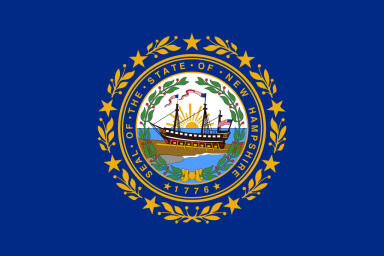Maryland Workers’ Compensation Laws

Technology continues to evolve, yet work accidents can still occur, no matter the precautions and security set up in a workplace. According to the Maryland Department of Health, approximately 3% of the state's workers get injured or sick each year.
To be compensated for their injuries and other losses, a worker must submit a claim with the Maryland Workers' Compensation Commission. Based on the WCC's annual report, the processes related to the filing of claims have been enhanced to the point that it has started phasing out paper filing for some documents.
In 2021, the number of claims in the state reached more than 21,840, a slight increase from the previous year's over 21,700 cases. The top three industries that submitted the most claims were trucking, security, and storage/warehouse. These numbers show that while filing for claims electronically has improved, there are still things that need to be done to lessen the incidence of workplace injuries and illnesses.
As such, various initiatives are being made to benefit the state’s workers, such as the Maryland Occupational Health and Safety Surveillance Project. This program helps various health agencies deal with work-related illnesses, creates reports on occupational disease statistics and indicators, and collects data from healthcare providers to monitor the occurrence of injuries and protect Maryland workers.
With the information given above, it’s crucial to know what you can do if you are injured while on the job. In this article, we'll discuss various workers' compensation laws and processes in Maryland. These also include the requirements employers must fulfill to cover their employees, the benefits injured workers may receive, and the step-by-step process for filing a workers' compensation claim. We'll then tackle what you can do if your claim is denied and offer various resources relevant to your concern.
Maryland Workers’ Compensation Insurance Requirements
Maryland has workers' compensation laws centered on providing employees with the right to be compensated for accidents, injuries, and occupational illnesses sustained while on the job. Employers that have one or more employees are required by state law to provide workers' compensation coverage from an authorized insurer to all of their workers, whether full-time or part-time.
However, some employees are exempted from automatically receiving workers' compensation benefits. These include:
Workers employed outside of Maryland.
Repair, maintenance, remodeling, or similar service workers who worked for less than 30 consecutive work days in a private house.
Volunteers for a political subdivision's unit and non-salaried members of a commission or board in Allegany, Carroll, Cecil, Charles, Frederick, Garrett, Queen Anne’s, St. Mary’s, Somerset, Washington, or Worcester County.
Partners in a partnership.
Licensed real estate brokers and salespeople.
People who receive workers' compensation benefits under federal law.
Certain workers for a religion or charitable organization.
There are also special workers' compensation rules that cover particular employees:
Domestic workers: They are covered if they are paid at least $1,000 in cash per quarter by the homeowner who hired them.
Farm workers: They are covered if they are paid for any labor apart from office work and if their employer has at least three full-time employees or pays its full-time employees a total of $15,000 or more per year.
Penalties for Non-compliance
Employers that fail to comply with the state's workers' compensation regulations must attend a hearing to explain why they are not providing coverage to their employees. The WCC will order them to get insurance and provide proof of coverage. Moreover, they must pay up to $10,000 in fines to the Uninsured Employers' Fund.
Maryland Workers’ Compensation Benefits
An injured worker in the state can obtain a variety of benefits through a workers' compensation claim if they have an occupational disease or were hurt while at work. Their potential benefits are laid out in the tables below:
Short-Term Disability Benefits
Permanent Disability, Vocational Rehabilitation, and Survivor Benefits
According to state law, an injured worker can also obtain compensation if they have a disability or terminal condition. Furthermore, dependents of a covered employee may be eligible for benefits if the worker dies due to a workplace injury or illness.
Situations Where Workers' Compensation Doesn't Cover an Employee's Injuries
In most cases, a covered employee is entitled to compensation for injuries and illnesses sustained in the workplace. This applies even if a worker’s injury was inflicted by a third party, as long as it occurred while they were working. However, there are situations when they are not eligible for benefits:
Intentional harm: A covered employee is not entitled to workers' compensation benefits if their intentional actions caused their injury, occupational sickness, or other compensable condition. This is likewise true if the losses they suffered were the result of their attempt to murder or inflict violence on another person.
Drugs: If an injury is caused solely by a drug, whether a depressant, narcotic, hallucinogen, stimulant, or hypnotic, the covered worker is not eligible for benefits. Furthermore, they are ineligible if the drug was not administered with a prescription.
Intoxication: If an employee is hurt as a result of intoxication, they are not entitled to compensation.
How to File a Workers’ Compensation Claim in Maryland
When it comes to filing a workers' compensation claim, both the employee and employer have responsibilities they must fulfill throughout the process. In this section, we'll go over the necessary steps to take for a worker to claim benefits for their injuries and losses.
When Is the Deadline for Workers’ Compensation Claims in Maryland?
The deadline for submitting a workers’ compensation claim in Maryland varies according to the circumstances:
If an employee is injured in a workplace accident, they have two years to file a claim.
If a worker sustains a disability from ionizing radiation, the deadline starts within two years after the date of disablement or when they knew that the disability came from ionizing radiation.
The statute of limitations for occupational diseases is typically two years. However, in cases involving a pulmonary dust disease, the allocated timeframe becomes three years.
If a worker dies as a result of their work-related injuries, a claim must be filed within 18 months.
If a claim is not filed within the deadline, the employee cannot obtain compensation. However, there are some instances where fraud or estoppel — a legal tool that forbids one from asserting something or refuting something already said — is to blame for the failure to file. In this case, they must submit a claim within one year of the date the fraud was discovered or the date the facts and other factors constituting estoppel cease to function.
A Step-By-Step Guide on Filing a Workers’ Compensation Claim in Maryland
1. Seek Medical Attention
If you’re injured while on the job, the first thing you must do is immediately seek medical attention. You must be checked by a medical provider to determine the extent of your injuries and the treatment you need to undergo for your recovery.
2. Report Your Injury or Illness to Your Employer
After sustaining an injury, you have 10 days to notify your employer. Meanwhile, in workplace incidents resulting in death, there’s a 30-day timeframe to give a report to the employer. For cases involving occupational diseases, the deadline is one year. Failure to notify your employer will result in you being barred from claiming compensation.
If your injury or disease renders you unable to work for more than three days, your employer should file a First Report of Injury within 10 days via CompHub. The report should contain information such as:
Whether the workplace incident caused an accidental personal injury or occupational disease.
The cause and nature of the disability and injury/illness.
The probable duration of the disability.
Any other information needed by the WCC.
It's important to note that the WCC no longer accepts FROIs in paper form.
3. File a Claim through the CompHub Portal
You must then file a claim application form through CompHub within 60 days after the date of your injury. Note that it can take at least two business days for the WCC to process your claim.
4. Check the Status of Your Claim
The next step is to check the status of your claim, which can be done in various ways:
Checking online through the WCC's Public Claim Data Inquiry page.
Subscribing to CompHub.
Calling 410-864-5100.
Your employer or their insurer can choose whether to assume responsibility for providing you with workers' compensation. They have 21 days to begin paying temporary total disability benefits or to file a claim with the WCC.
When the WCC receives your claim, it may order a hearing and conduct an investigation. It can then choose whether to deny or award compensation within 30 days of the hearing or filing notice.
5. Receive Your Benefits After Claim Approval
If your claim has been approved and no dispute arises, you will be able to start receiving compensation. Your employer or insurer will compensate you within 15 days after the award is made or due until you achieve maximum medical improvement.
You must submit to a medical examination if the WCC requests you to. During this period, a physician will examine you for any injuries or disabilities that may have resulted from the accident. In case you have a permanent impairment, a qualified psychologist will also examine you to see whether you have mental or behavioral disorders.
6. Settle Your Claim
While not a requirement, you can enter a final compromise or settle any current or future claim with your employer, their insurer, the Uninsured Employers' Fund, or the Subsequent Injury Fund. To start the settlement process, you must file the required documents via CompHub. Note that the WCC no longer accepts settlement applications in paper form as of October 9, 2023.
What Should One Do if a Workers’ Compensation Claim in Maryland Has Been Denied?
After filing a claim in Maryland, it may be denied by your employer or their insurer for a number of reasons, such as:
Failing to submit a notice or claim on time.
Discovering that your ailment existed prior to employment.
Your employer opposing your claim.
If your claim results in this outcome, it's essential to know what options you may have. One recourse is to file an appeal with the WCC within 30 days of the claim denial. You should do it in the county where you live, your employer's regular place of business, or where the accident occurred.
The WCC will then schedule a hearing where you can present your evidence and witnesses and argue why you are eligible to be compensated. If the appeal is granted, you will be entitled to compensation.
However, in case your claim continues to be denied or you disagree with a decision of the WCC, you can file an appeal with the Circuit Court.
Legal Resources for Injured Workers in Maryland
Maryland Workers' Compensation Commission
The WCC is the state's governing authority for workers' compensation matters. One of its primary roles is to manage workers' compensation claims. It operates CompHub, a website where injured workers can file and manage their claims and access public claim information. The website also provides access to various resources, such as answers to frequently asked questions concerning workers' compensation, papers required when filing a claim, and information about vocational rehabilitation and medical fees.
For more information, call 410-864-5100.
Maryland Insurance Administration
The Maryland Insurance Administration is a government agency that focuses on consumer protection by regulating insurance companies and producers in the state. It helps consumers understand the insurance products available in Maryland and choose the appropriate one for their needs. If a client has a problem with their insurance, suspects fraud, or believes an insurance producer, consultant, or adjuster is engaging in illegal practices, they can file a complaint online.
One can learn more about the MIA by visiting Maryland Manual Online or reaching out to the office relevant to one's concern.
Maryland Subsequent Injury Fund
The Maryland Subsequent Injury Fund is a state institution that helps with workers' compensation claims that involve pre-existing medical conditions. It has a Claims Department that requests information on earlier workers' compensation claims and potential third-party proceedings, files issues, and prepares new claims for WCC hearings. In addition, it provides access to Settlement Agreement templates. It also has a non-budgeted fund that distributes benefits to qualified employees.
For more information regarding its services, contact the SIF at 410-527-4010.
Expertise.com StaffAuthor
Step into the world of Expertise.com, your go-to hub for credible insights. We don't take accuracy lightly around here. Our squad of expert reviewers, each a maestro in their field, has given the green light to every single article you'll find. From rigorous fact-checking to meticulous evaluations of service providers, we've got it all covered. So feel free to dive in and explore. The information you'll uncover has been stamped with the seal of approval by our top-notch experts.




